Every morning I clear the detritus from my Inbox and tag Substacks to circle back to with the second coffee. Every so often, one’s a communiqué from the Booker Prize people. I love these posts—visually appealing, rich in content—the new longlists and shortlists of their several Prizes—but also deep dives1 into the nearly 700 Booker-nominated titles since 1969. The link:
https://thebookerprizes.com/
Happily, they love lists as much as I do—most are aggregated around a theme or common property (more on this below). Also happily, most have a mix of titles I know and esteem (some I’ve urged you to read2 ), ones I recognize, and ones I know not.
Today’s post:
I moseyed though their cache of lists this week, picked out ten, then a book from each (and a few bonuses). Project/challenge at the end.
[*I’ve read]
Best Nominated Sci-Fi:
In Ascension, Martin MacInnes (2023) [Scotland]
Longlisted, Booker 2023.
Haven’t run into this one before. It’s acquired a boatload of praise—and, to judge from the comments, the sharper reader you are the more you’ll get into it.
Adapted from the Booker site:
[Marine microbiologist] Leigh joins the exploration team to investigate an underwater vent three times deeper than the Mariana Trench, hoping to find evidence of Earth’s first life forms. What she instead finds calls into question everything we know about our own beginnings, and leaves her facing an impossible choice: to remain with her family, or to embark on a journey across the breadth of the cosmos.
https://thebookerprizes.com/the-booker-library/features/the-best-sci-fi-books-nominated-for-the-booker-prize
[Note: There’s a second list called Best Speculative Nominations, but they are mainly books like Oryx and Crake and The Underground Railroad that you’re well aware of.]
Novels Exploring the Passage of Time:
*The Eighth Life, Nino Haratischvili (2014) [trans. from German, by Charlotte Collins and Ruth Martin, 2019] [Georgia]
Longlisted, International Booker 2020.
My Bulgarian friend across the alley gave me this one. Roughly 950 pp. in English.3
Seven rich chapters documenting seven generations of the Jashi family, as recounted by Niza to her sister’s 12-year-old daughter, Brilka, beginning with Niza’s great-great-grandfather, the chocolatier with the magic formula (the exquisite chocolate weaves in and out of all the stories). Brilka’s is the eighth life—her chapter only has its title page. Though there’s only a whiff of magical realism, the novel is reminiscent of Garcia Marquez’s Buendia family, unfolding across seven generations (One Hundred Years of Solitude).
https://thebookerprizes.com/the-booker-library/features/booker-prize-nominated-novels-that-explore-the-passage-of-time
Best Nominated Novels by Latin American writers:
*Elena Knows, Claudia Piñeiro (2007) [trans. from Spanish by Frances Riddle, 2021]. [Argentina]
Shortlisted, International Booker 2022.
I had a different book4 picked, but decided it was too grim/violent, and didn’t want today’s post to be so heavily weighted in that direction. When I returned to the Booker list, I saw how pervasive violence/sexual violence/death was in the dozen titles. Though I’ve pitched Piñeiro’s novel in earlier posts, I’ll pitch it again now. It was my first introduction to Charco Press—an indie outfit from Edinburgh, Scotland, that specializes in South American literature in translation (mainly Argentinian)—they’re slim books, keenly translated, and their design makes them easy to spot on a library or bookseller shelf (like Europa Editions, Persephone Books, and New York Review of Books Press). I bonded with this novel straightaway.
Charco’s blurbage:
After Rita is found dead in the bell tower of the church she used to attend, the official investigation into the incident is quickly closed. Her sickly mother is the only person still determined to find the culprit. Chronicling a difficult journey across the suburbs of the city, an old debt and a revealing conversation, Elena Knows unravels the secrets of its characters and the hidden facets of authoritarianism and hypocrisy in our society.
https://thebookerprizes.com/the-booker-library/features/the-best-booker-nominated-books-by-latin-american-authors
Dysfunctional Families:
Lost on Me, Veronica Raimo (2022) [trans. from Italian by Leah Janeczko, 2023] [Italy]
Longlisted, International Booker 2024.
From Amazon:
Spikey and clever, Vero delights in her own devious schemes. As she guides us through her failed attempts at emancipation, her discovery of sex and fixations with unwitting men, and ultimately her contentious relationship with reality, she also brings alive Rome from the 1980’s through the early 2000’s. With restless intelligence and covert tenderness, Lost on Me takes on the uncertain enterprise of becoming a woman.der that Vero becomes a writer - and a liar - inventing stories in a bid for her own sanity.
https://thebookerprizes.com/the-booker-library/features/dysfunctional-families-in-booker-prize-nominated-novels
BONUS: *Great Granny Webster, Caroline Blackwood, 19775
https://thebookerprizes.com/the-booker-library/features/why-you-should-read-great-granny-webster-by-caroline-blackwood
Shortlisted, Booker 1977.
Best Translated Books as Picked by Booker-Nominees:
Cursed Bunny [stories], Bora Chung (2017) [trans. from Korean by Anton Hur, [2021] [South Korea]
Shortlisted, International Booker 2022.
This one sounds just a bit edgy.
From the judges:
While the stories in Cursed Bunny . . . blend elements of horror, fantasy and the surreal, each is viscerally rooted in the real fears and pressures of everyday life. Chung’s genre-defying collection is translated with verve and evident relish by Anton Hur, who shifts effortlessly from playful to harrowing.
From a fellow translator:
If I’m honest, I’ll read anything Anton Hur translates. I love and trust his eye and know that if he’s agreed to translate it, it’s going to be amazing. Cursed Bunny is no exception, the writing is phenomenal and thought-provoking. It’s a fierce collection of genre-defying short stories, both things mainstream publishing seems to be perpetually saying aren’t interesting to readers, yet Bora Chung and Hur are out here proving the opposite.
https://thebookerprizes.com/the-booker-library/features/translated-fiction-picks
And what a cover!
BONUS: *January, Sara Gallardo (1958) [trans. from Spanish by Frances Riddle and Maureen Shaughnessy, 2023] [Argentina]
Selva Almada’s commentary:
This is a short novel, written with great intensity and lyricism, about a peasant girl, pregnant from a rape, who doesn’t know how to have an abortion. It was a book written in the 1950s, when the author was just 25 years old, and is her first novel. And it is a book that lacks nothing. A novel that 70 years before abortion was legalised in Argentina already spoke of it as an urgent necessity for the life and health of women from the most vulnerable classes. It is a book of great lucidity and sensitivity.
[Note: January is from Archipelago—see Reading Projects [16]: Archipelago]. Selva Alamada is a major Argentinian novelist, and Charco Press writer.]
Crime Novels:
His Bloody Project: Documents Relating to the Case of Roderick Macrae, Graeme Macrae Burnet (2015) [Scotland]
Shortlisted, Man Booker 2016.
From the Booker site:
In 1869, Roderick Macrae was accused of the brutal slaying of three people, in a murder trial that gripped the British public. Roderick’s memoir, along with court transcripts, medical reports, police statements and newspaper articles, show that he readily admitted his guilt. But do they reveal just why a young man would commit the most atrocious acts of violence? Why didn’t he defend himself more vigorously, or try to cover up the crime? And will he hang?6
https://thebookerprizes.com/the-booker-library/features/the-best-crime-novels-from-the-booker-library
Revisiting the Novels of the 80s:
*The Clear Light of Day, Anita Desai (1980) [India]
Shortlisted, Booker 1980.
Desai’s been shortlisted for the Booker three times. Last year, at age 87, she published her 18th book (not counting the children’s books). Long ago, I read her short story, “Pigeons at Daybreak” [in Games at Twilight, 1978] and it’s never left me. An old couple in a sweltering Delhi flat, the husband asthmatic; when the neighborhood’s electricity goes out, the man’s bed is carried to the rooftop. At last, dawn comes, a breath of cool air; the pigeons rise is a burst and fly off. That’s it. A quiet atmospheric piece, saturated with . . . I don’t know what to call it—unexpected grace?
Just now, as I was typing this, I realized I’d paid homage to it in a short story maybe a dozen years ago.7
Anyway, The Clear Light of Day introduced me to the Indian Partition. I’d had only a fuzzy idea of the British Raj—I’d read about Gandhi, but had no real awareness of what occurred at the time of independence—the chaos and horrific violence, the uprooting of 14 million people as the subcontinent was split into Muslim and Hindu/Sikh states. Desai lets us witness the macro events playing out amid families, groups of friends.8
https://thebookerprizes.com/the-booker-library/features/the-booker-in-the-1980s-10-novels-that-are-well-worth-revisiting
[Note: Anita Desai’s daughter, Kiran Desai, won the 2006 Man Booker Prize for her novel, The Inheritance of Loss.]
BONUS: The Battle of Pollocks Crossing, J. L. Carr (1985).
Carr is known for the lovely, slender, emotionally resonant novel, A Month in the Country (1980)—many of you know it from the NYRB Press reprint.
Shortlisted, Booker 1985.
Read about it here:
https://thebookerprizes.com/the-booker-library/books/the-battle-of-pollocks- crossing
Novels Books by Poets:
Time Shelter, Georgi Gospodinov (2020) [trans. from Bulgarian by Angela Rodel (2023)] [Bulgaria]
Winner, International Booker 2023.
The most-translated Bulgarian writer since the fall of communism. Pretty sure this qualifies as slipstream (see Reading Projects [19]: Slipstream). Having read stabs by others at capturing the novel in a few sentences, I’ll defer.
Here’s Gospodinov’s page at the Booker site—you’ll find a reader’s guide, an interview of Gospodinov and Rodel, etc.—and a video of an actor reading from the novel:
https://thebookerprizes.com/the-booker-library/authors/georgi-gospodinov
[It also appeared in the Best Translated Books as Picked by Booker-Nominees list.]
https://thebookerprizes.com/the-booker-library/features/eight-of-the-best-booker-nominated-books-written-by-poets
The Steamiest Booker Nominees:
*Boulder, Eva Baltasar (2020) [trans. from Catalan by Julia Sanches, 2022] [Spain]
Shortlisted, International Booker 2023.
This (and two other slender books by Baltasar) were sent to me when I subscribed to & Other Stories, an indie U.K. press. Their books are beginning to get more attention lately, I think. The newest bunch have uniform, attention-grabbing covers.9
The story of a itinerant cook aboard a cargo ship, her hook-up with another woman, Samsa—their love affair, their move to Reykjavik, the fallout from Samsa’s desire to have a child.
Is there steam? There is steam.
[Note: Baltasar has a slew of poetry books and could’ve appeared in the previous list.]
https://thebookerprizes.com/the-booker-library/features/nine-of-the-steamiest-reads-from-the-booker-library
Funniest Bookers:
Solomon Gursky Was Here, Mordecai Richler (1989) [Canada]
Shortlisted, 1990.
“ . . .an epic tale of a family’s absurd exploits over 150 years . . . a book of both anger and compassion but carried along with a comic exuberance that recalls the fluent style of other great Jewish novelists of the last century like Bernard Malamud and Philip Roth. But Richler has a pace and wit . . . all his own, and the book’s length, as well as its characters’ overlapping tomfoolery, means it will keep you good company.”
If you’re of my vintage you might remember The Apprenticeship of Duddy Kravitz (1974), an early Richard Dreyfuss vehicle, adapted from Richler’s novel of the same name (1959).
https://thebookerprizes.com/the-booker-library/features/10-of-the-funniest-novels-from-the-booker-library
BONUS: My Sister the Serial Killer, Oyinkan Braithwaite (2019) [Nigeria]
Longlisted, Booker 2019.
https://thebookerprizes.com/the-booker-library/books/my-sister-the-serial-killer
The Booker in the 1970s:
Mrs Palfrey at the Claremont, Elizabeth Taylor (1971)
Shortlisted, Booker 1971.
Not that Elizabeth Taylor.10
I’ve logged three of her novels—In a Summer Season (1961); The Sleeping Beauty (1953); A Game of Hide and Seek (1951)—but not Mrs Palfrey, the one most often recom-mended. Filmed in 2005 with Joan Plowright.
London, the 1960s, a recent widow moves into a hotel filled with others of her vintage. Complications ensue. Her 11th novel, called her funniest and saddest. Washington Post: Taylor fastidiously avoids sentimentality in her descriptions of the lonely hotel residents.” It appears among the Guardian’s 100 Best Novels in English.
https://thebookerprizes.com/the-booker-library/features/the-booker-in-the-1970s-10-novels-that-are-well-worth-rediscovering
Seven Others Bookers I Want to Read:
Newish ones:
Stone Yard Devotional, Charlotte Wood (2024)11 [Australia]
The Seven Moons of Maali Almeida, Shehan Karunatilaka (2022) [Sri Lanka]
This Mournable Body, Tsitsi Dangarembga (2020) [Zimbabwe]
At Night All Blood Is Black, David Diop (2018) [trans. from French by Anna Moschovakis, 2020] [France, Senegal]
Older ones:
The Famished Road, Ben Okri (1991) [Nigeria, U.K.]
Illywacker, Peter Carey (1985) [Australia]
Midnight’s Children, Salman Rushdie (1981) [India, U.K.]
And Seven I Love:
Ones you know:
Normal People, Sally Rooney (2018) [Ireland]
Eileen, Ottesss Moshfegh (2016)12
The English Patient, Michael Ondaatje (1992) [Sri Lanka]
The Remains of the Day, Kazuo Ishiguro (1989)
Ones you maybe don’t know:
Whale, Cheon Myeong-kwan (2004) [trans. from Korean by Chi-Young Kim, 2023] [South Korea]
If No One Speaks of Remarkable Things, Jon McGregor (2002)
The Restraint of Beasts, Magnus Mills (1998)
The Project/Challenge:
Read any six of the books in this post—main part or notes. One per month, starting May 2025.
At least half must be non-U.S./non-English.
Try to balance the women and men.
Finally (recommendation not requirement): If you haven’t read A Month in the County, do. If you want a wonderfully askew/deadpan serving of black humor, read The Restraint of Beasts.
P.S. If you visit the Booker site and leave your name, etc., you have a shot at winning the 2025 Shortlisted Books:
https://thebookerprizes.com/the-booker-library/features/win-a-set-of-all-six-books-from-the-international-booker-prize-2025
Deep Dives: Today’s post focuses on books related by a common property, but the site has a slew of other kinds of post. A few examples:
https://thebookerprizes.com/the-booker-library/features/monthly-spotlight-10-minutes-38-seconds-in-this-strange-world-by-elif-shafak
https://thebookerprizes.com/the-booker-library/features/where-to-start-with-ian-mcewan-a-guide-to-his-best-books
https://thebookerprizes.com/the-booker-library/features/my-next-booker-book-what-our-authors-and-judges-will-be-reading-this
https://thebookerprizes.com/the-booker-library/features/the-bp-2024-authors-on-the-book-that-inspired-them-to-be-a-writer
https://thebookerprizes.com/the-booker-library/features/what-everyone-is-saying-about-orbital-winning-the-booker-prize-2024
For instance:
Kairos, Jenny Erpenbeck (2021) [trans. from German by Michael Hoffman, 2023] [Germany] Winner, International Booker 2024.
The Memory Police, Yōko Ogawa (1994) [trans. from Japanese by Stephen Snyder, 2020] [Japan] Shortlisted, International Booker 2020.
Lincoln in the Bardo, George Saunders (2017) Winner, Booker 2017.
950 pp.: If you’re anything like me, committing to a doorstop is daunting—you think: I dunno, I could read three or four regular novels in the time it takes . . . But, you know, it’s good to read one of these every so often—The Recognitions. Les Misérables, Jonathan Strange & Mr Norrell, IQ84, The Way We Live Now, A Suitable Boy, 2666, Underworld, Lonesome Dove . . .
Different book: Hurricane Season, Fernanda Melchor (2017) [trans. from Spanish by Sophie Hughes, 2020] [Mexico]
Melchor is highly regarded for two other slender novels, Paradis and This Is Not Miami. I plan to read this one, but didn’t feel comfortable urging it on you unless I had.
About the translator: Sophie Hughes won the PEN Translation Award for this book. I’m working on a post devoted to translators, including Hughes. Twenty-some of her tran-slations from Spanish have been longlisted, shortlisted, or won major awards, including this year’s Perfection [Vincenzo Latronico] and 2018’s The Remainder [Alia Trabucco Zerán].
Macrae: One can help but notice the fact that the writer’s middle name is the same as the Victorian perp. Hmmm.
Homage:
No one uses the north fire escape, so it’s your private crow’s nest. In the months before this, dawn meant coming down zingy from whatever kept you up all night, but now when you wake, five, five-fifteen, the air is pearly cool, traffic on the Dugan so thin you hear pigeons taking flight across the way, all at once, the wingbeats sounding like a sheet being shaken out, fresh from the clothesline. —“Skull” in Glimmer Train and Pushcart Prize Stories XLIII.
Partition: I was in my early 30s when I read this . . . old enough to start imagining what had occurred on the ground during American Independence. I’d never really stopped to imagine what it was like to be a British subject in a small Massachusetts town, having to parse your conflicted loyalties, your family’s future at stake; I had no notion of what befell Loyalists, nor did I have a clue, then, that those New Englanders were my actual flesh-and-blood forbears.
& Other Stories:
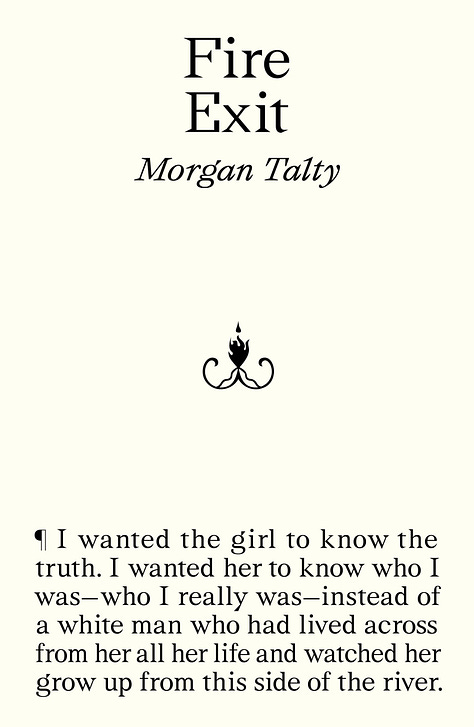
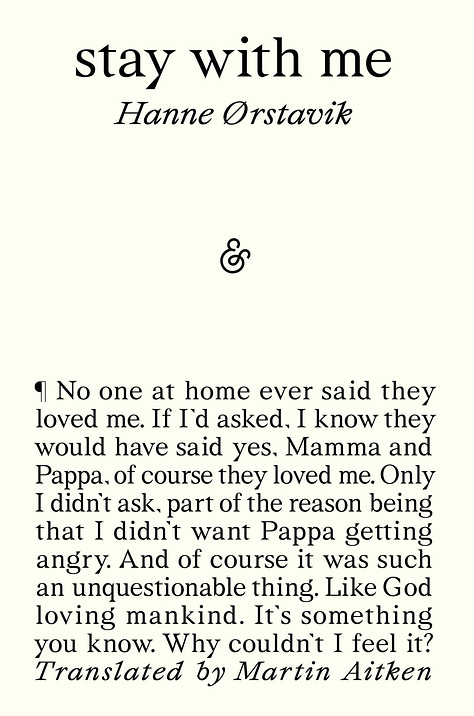
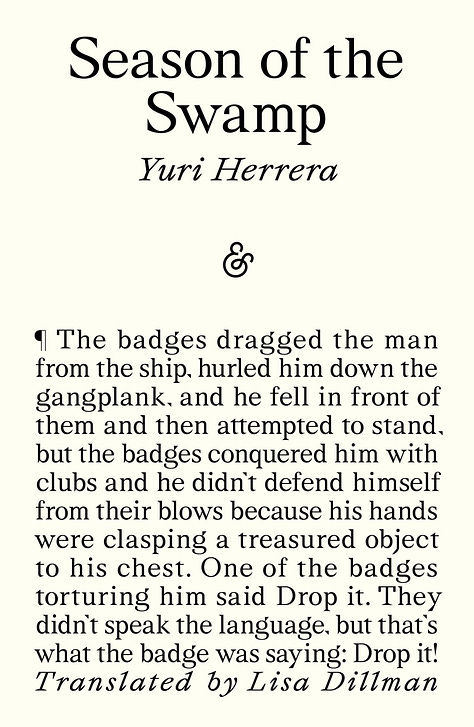
Elizabeth Taylor: Did you know there was a best-selling American writer named Winston Churchill? That there are several David Mitchells with books?
Fun fact: At Amazon you’ll scroll through five dozen David Long books before coming to one of mine. Just to avoid confusion, I did not write:
The Hats that Made Britain: A History of the Nation Through Its Headwear (2021)
London Murders: In the Footsteps of the Capital’s Killers (2021)
Wood Pallet Projects: 50 Projects To Decorate Your Home And Garden: (Wood Pallet Furniture, DIY Wood Pallet Projects) (2017)
Henry Ford: Industrialist (2016)
The Hajj Today: A Survey of the Contemporary Pilgrimage to Makkah (1979)
Charlotte Wood: I really admired her quasi-speculative 2016 novel, The Natural Way of Things.
Moshfegh: Easier to pronounce than it looks: Mawsh-feg. I love Eileen—the narrator’s unsparing look at the colorless life of her younger self, with a late twist. But it’s her least out-there novel. Do yourself a favor and try My Year of Rest and Relaxation (2018). Ask yourself (if you’re a writer) if you have the stones to write a character like this unnamed narrator; if you’re a reader, ask yourself why you’re reading it with such glee.
Well, and then there’s, um, McGlue (2014).




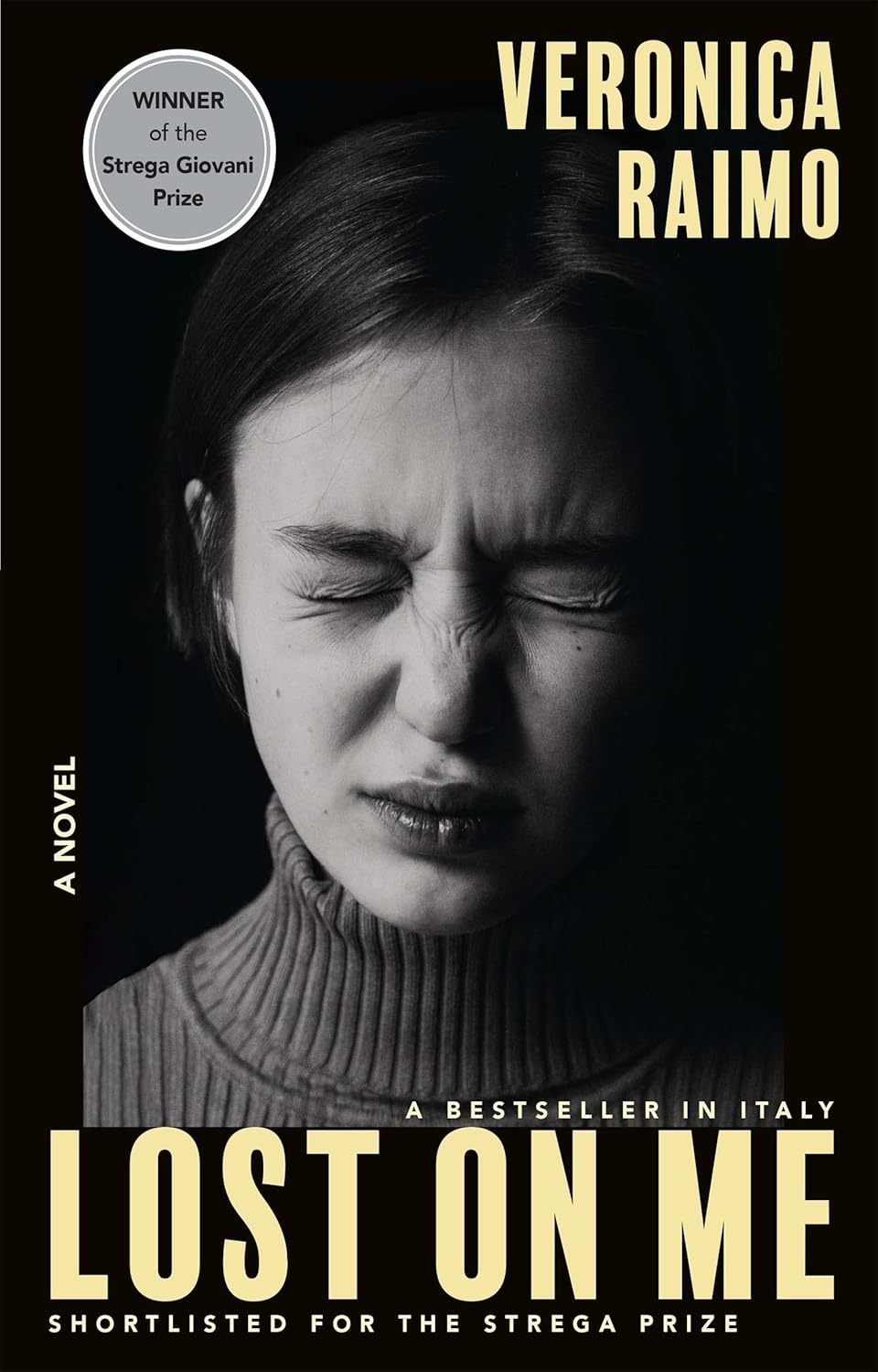

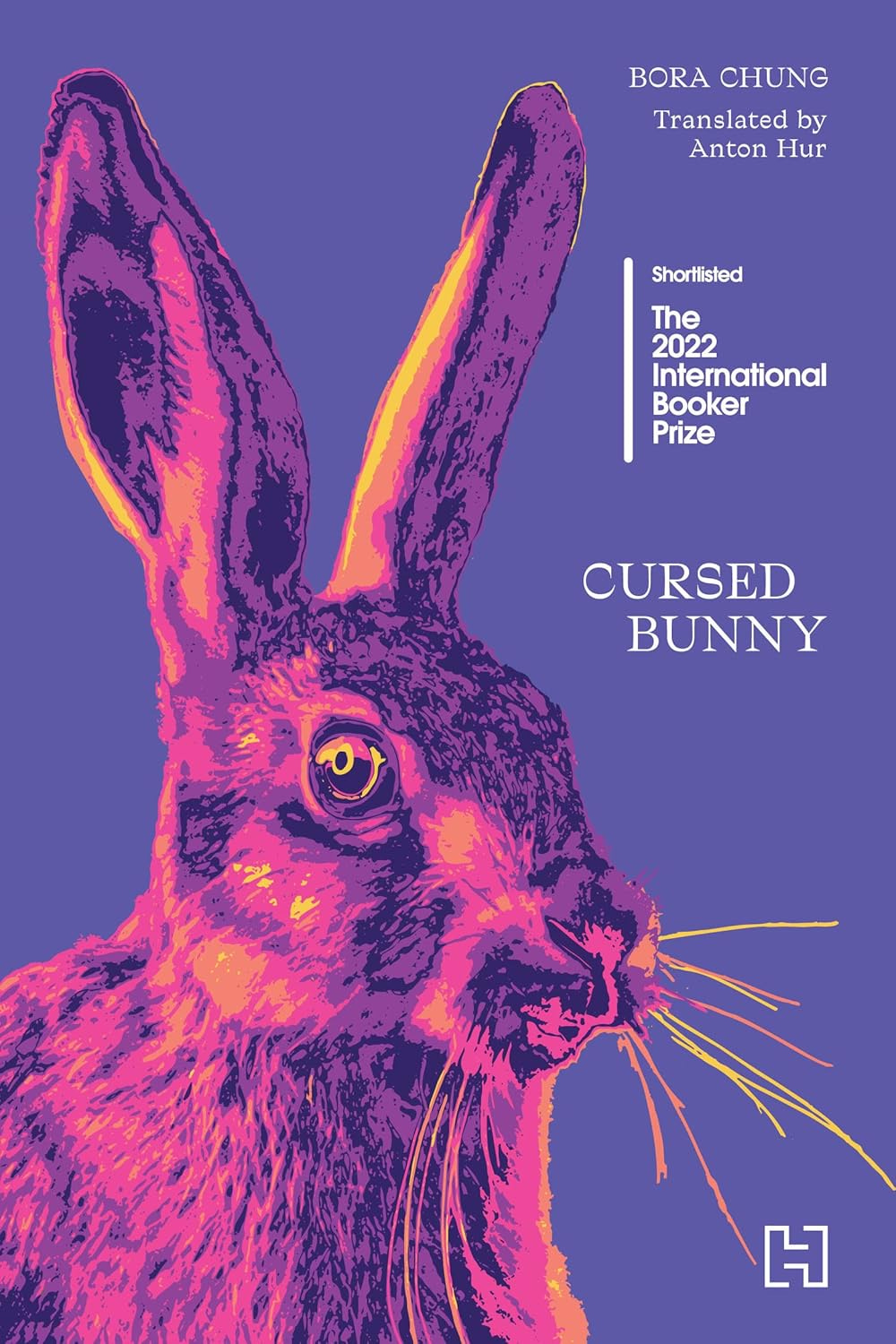


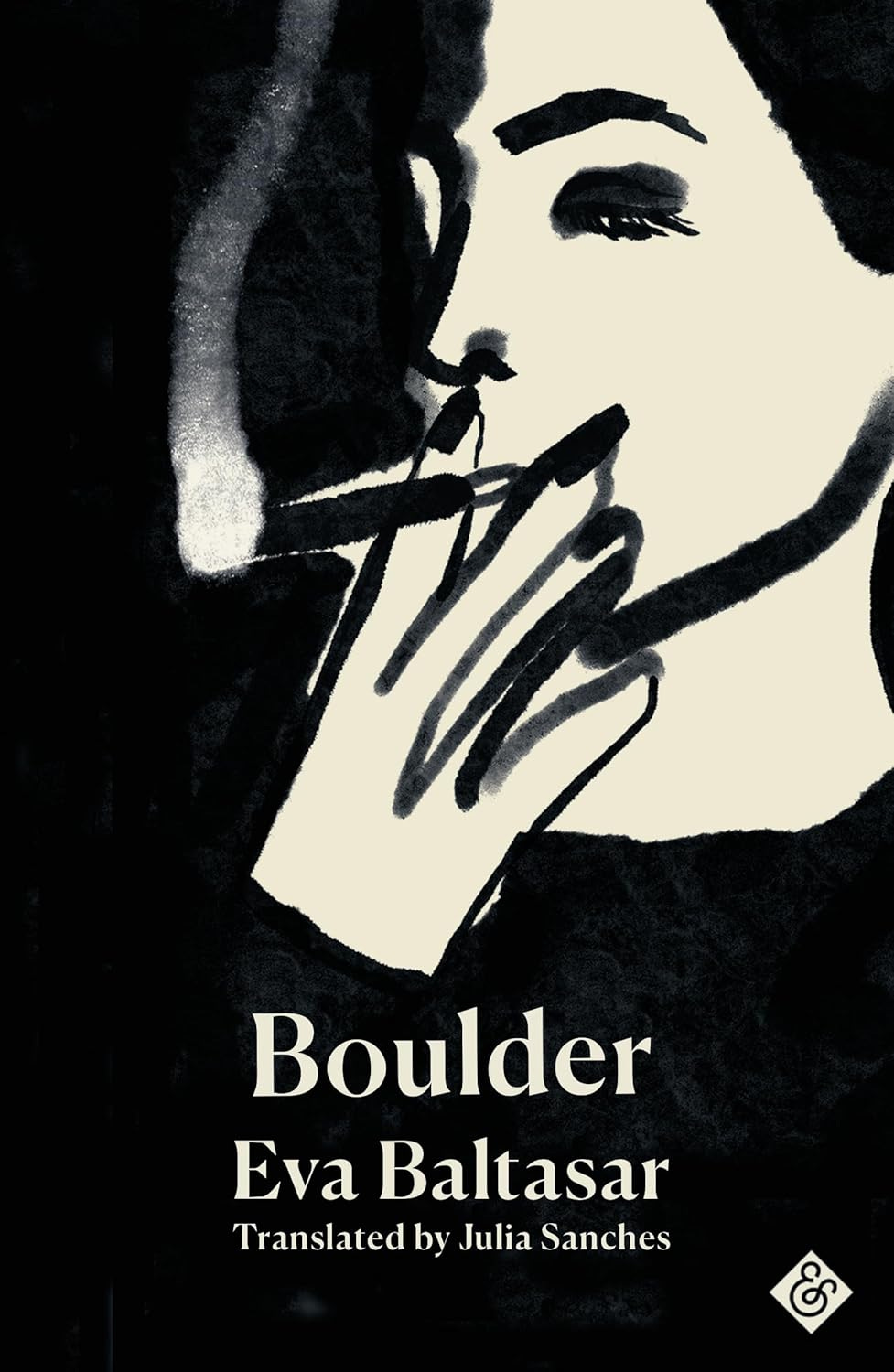
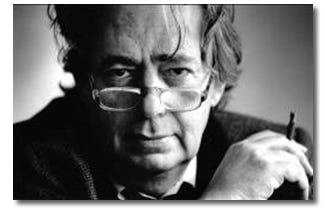




Thank you for the links.